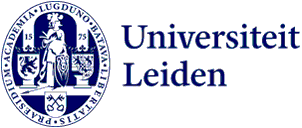
What can Europe learn from Islamic thought?
Islamic banking, freedom of religion, LGBTQ+ acceptance and education are topics that European Muslims find important for their future. These are the results of a survey by Professor of Islam and the West, Maurits Berger. The survey is the starting point of a citizen project in which Berger wants to work with Muslims and European colleagues.
A hundred Muslims from ten countries have already completed the survey. As well as the topics above, they also noted the following: Sufism, climate change, freedom of religion, medical ethics, Islamic institutions in a national context, health and halal food.
Read more about Maurits Berger’s project in a previous article. What is the design and aim of his study? And why has he chosen citizen science?
Islamic lens
In the research Berger will look at these topics through an Islamic lens. The topic of food, for example: ‘There are enough people who think that you shouldn’t eat meat or should eat less of it. But the argument Muslims have for this is an Islamic one. What is this argument and is it influenced by the European environment? That’s what I want to find out.’
For the average westerner sustainable development is a mix of disparate topics but in Islam they already have a natural congruity, which is interesting.
He also wants to look at certain topics and whether Muslims have interesting alternative arguments that might benefit the rest of Europe. Sustainable development, for example. ‘It’s a complicated topic where an assortment of things come together like the environment, women’s rights, economic rights and good governance. For the average westerner these are disparate topics but in Islam they already have a natural commonality, which is interesting. The UN has already said we can benefit from how Muslim intellectuals approach this topic.’
Discussion with students and alumni
During the Euro Science Open Forum conference, Berger discussed his project with Muslim students and alumni. What do they think about this different way of conducting research? Asri Prasadani said, ‘I think it’s a good idea to gain knowledge from people rather than from books or the academic world. What’s happening in reality, in daily life in Europe?’
Samira Ibrahim viewed the research from another perspective. ‘I think everyone in Europe should be included equally instead of making a distinction between Muslims and non-Muslims.’ She thought the Islamic perspective should be part of the general discourse on future challenges.
‘For long Muslims have been put in a defensive position. Now we have the opportunity to show what Muslims have to contribute.’
Voluntary work
Alin Jabbari agreed that this deserved more attention, but said it is good that Muslims now have the chance to share their vision in this project. ‘For long Muslims have been put in a defensive position. Now we have the opportunity to show what Muslims have to contribute.’
This could be with voluntary work, said Amna Mirza. ‘Islam encourages us to be active in our own community. Look at your neighbours, the people around you. It’s not only Muslims that volunteer, so let’s see if we can volunteer in each other’s communities and see what we can then achieve.’
Results
Berger wants to generate research for his project with more discussions, lectures and other activities. You can still fill in the survey. Berger’s research should ultimately lead to research articles, blogs and podcasts.
Text: Dagmar Aarts
